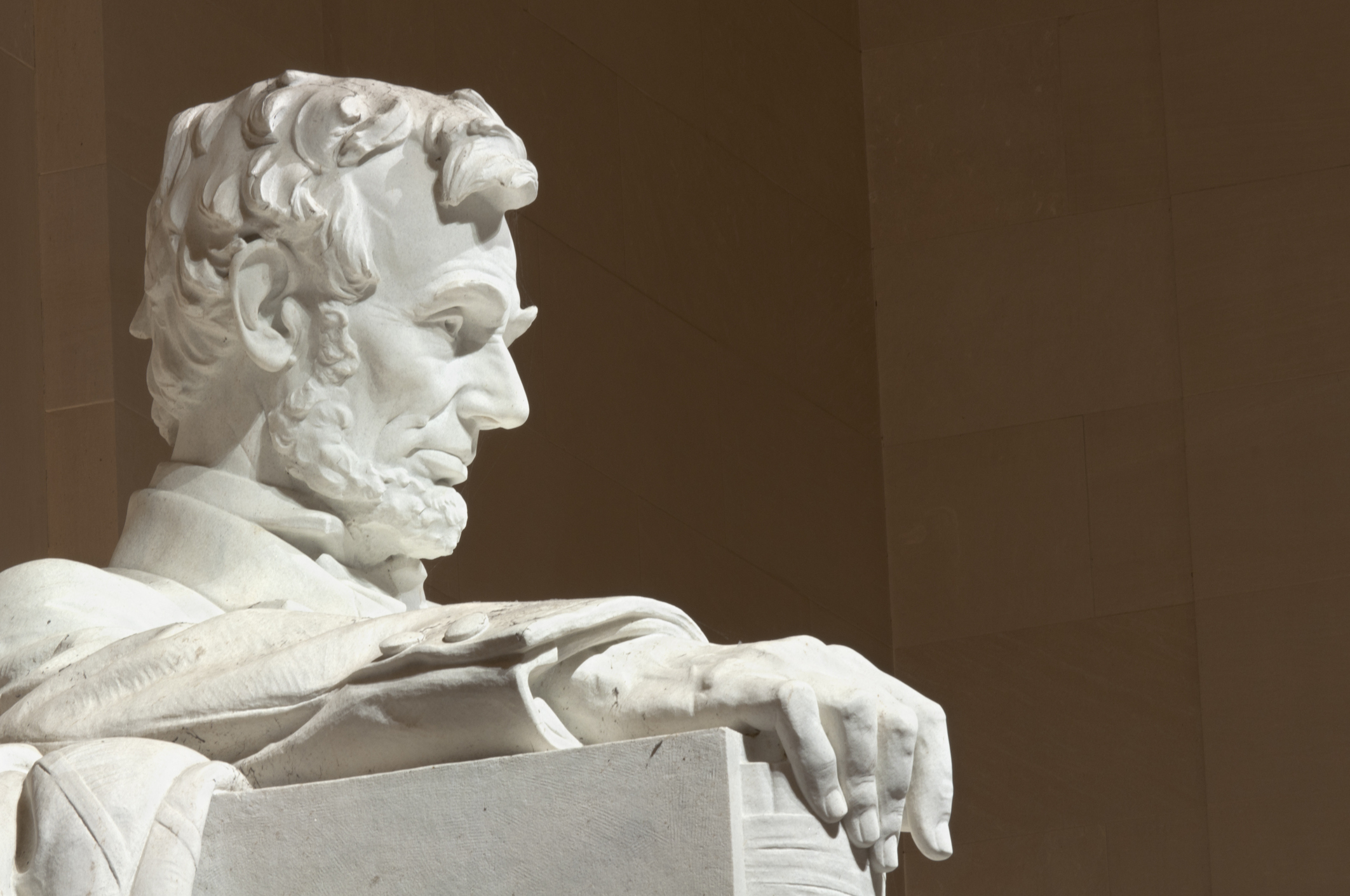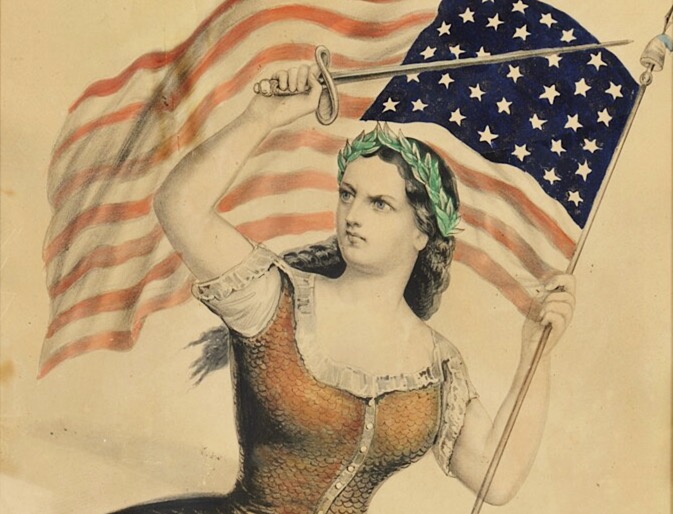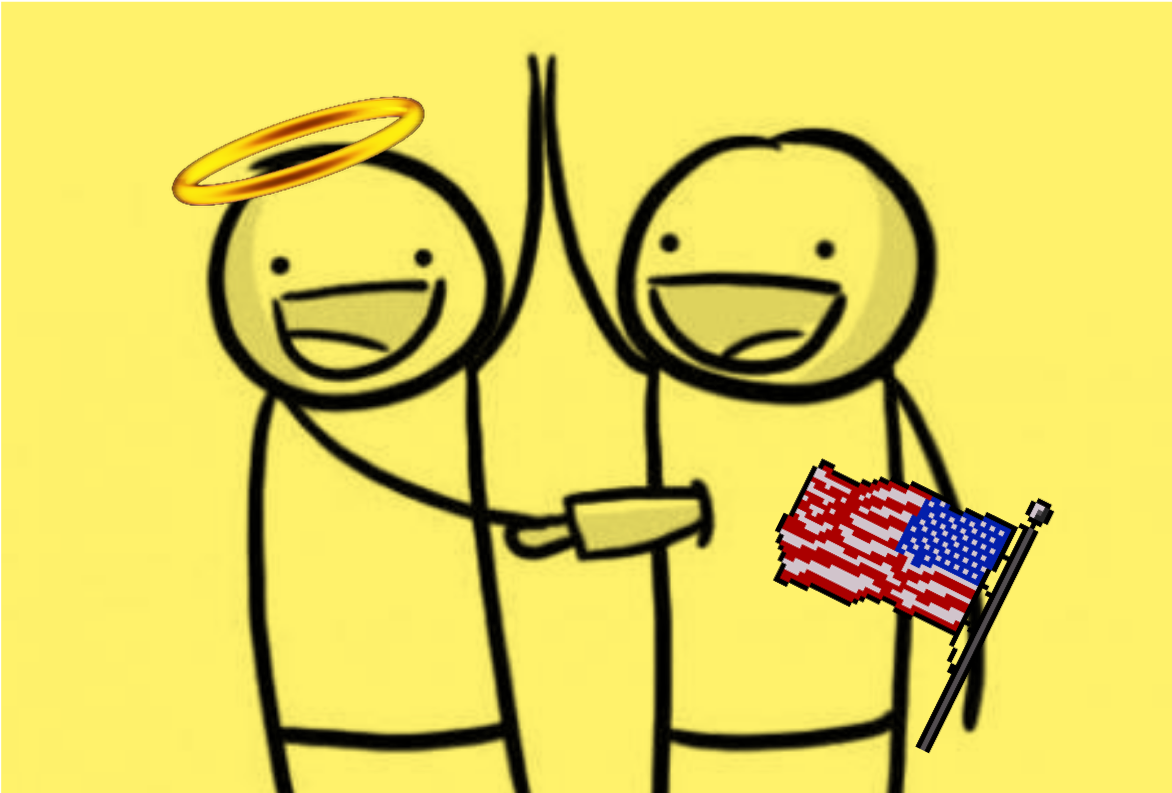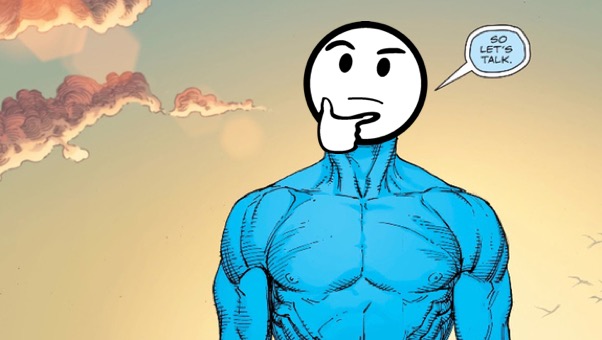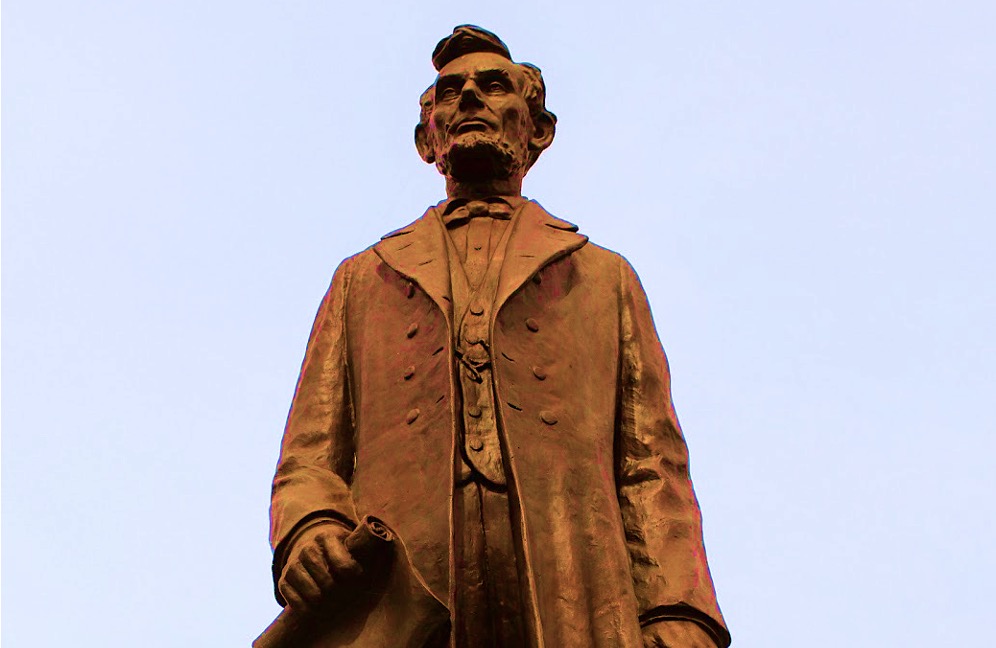Following Trump's lead—and Lincoln's.
David Brooks’s “Case” for Reparations

David Brooks’s New York Times piece, “The Case for Reparations,” is so dumb, irresponsibly emotive, and wrong in both its premises and conclusions, that it deserves a section-by-section commentary. Brooks:
…So let’s look at a sentence that was uttered at a time when the concept of sin was more prominent in the culture. The sentence is from Abraham Lincoln’s second Inaugural Address. Lincoln had just declared that slavery was the cause of the Civil War. He was fondly hoping and fervently praying that the scourge of war would pass away. But then he added this thought:
‘Yet, if God wills that it continue until all the wealth piled by the bondsman’s 250 years of unrequited toil shall be sunk, and until every drop of blood drawn with the lash shall be paid by another drawn with the sword, as was said 3,000 years ago, so still it must be said “the judgments of the Lord are true and righteous altogether.”
There are a few thoughts packed into that sentence. First, there is a natural moral order to the universe. There is a way things are supposed to be — more important than economic wealth or even a person’s life.
Without granting the truth of the paragraphs before the Lincoln quote, so far, so good.
Second, moral actions are connected to each other. If somebody tears at the moral order by drawing blood through the lash of slavery, then that wrong will have to be paid for by the blood of the sword. History has meaning. It’s not just random events.
This is where the piece really starts to go off the rails. Brooks here transforms Lincoln into Hegel. Lincoln submits to God’s will, which is, in its mysterious and divine way, willful—not inevitable. Injustices are not always repaid, at least not in this life. The moral arc of America does not, as we march through the years, bend increasingly towards justice. We are prone, like any other human political community, to backsliding, political turmoil, and a collapse into anarchy or tyranny (or one followed by the other).
Third, sin is anything that assaults the moral order. Slavery doesn’t merely cause pain and suffering to the slave. It is a corruption that infects the whole society. It is a collective debt that will have to be paid.
It was both Jefferson’s and Lincoln’s position that slavery corrupts both master and slave, and corrupts the morality of a nation practicing or condoning it. But hasn’t this collective debt been paid? Weren’t 620,000 American lives taken by the Civil War, to say nothing of what are today almost unimaginable losses of property and infrastructure? Weren’t the 13th, 14th, and 15th Amendments ratified a century and a half ago? Wasn’t Jim Crow ended and isn’t the 1964 Civil Rights Act (at least, before its corruption into a vehicle for racial set-asides instead of the equal application of the laws) the law of the land?
Fourth, sin travels down society through the centuries. Lincoln was saying that sometimes the costs of repairing sin have to be borne generations after the sin was first committed.
See above. They have been so borne, by generations.
From these thoughts we can appreciate the truth that while there have been many types of discrimination in our history, the African-American (and the Native American) experiences are unique and different. Theirs are not immigrant experiences but involve a moral injury that simply isn’t there for other groups.
If you go back far enough in history, all peoples have aggressed against all others at some point. I take it with the parenthetical inclusion of Native Americans that Mr. Brooks is here implicitly endorsing Elizabeth Warren’s plan for reparations for Native Americans as well as blacks? And why stop there? Muslims and some African peoples sold blacks into slavery to whites. The Aztecs enslaved many peoples until the Spanish arrived. Shouldn’t these sins also be repaired?
Slavery and the continuing pattern of discrimination aren’t only an attempt to steal labor; they are an attempt to cover over a person’s soul, a whole people’s soul.
That injury shows up today as geographic segregation, the gigantic wealth gap, the lack of a financial safety net, but also the lack of the psychological and moral safety net that comes when society has a history of affirming: You belong. You are us. You are equal.
Except as Thomas Sowell has pointed out in numerous articles and books, it’s much too facile to assume the black wealth gap (or poverty gap) today has anything to do with slavery. In fact, in Sowell’s telling, the trend of falling black poverty rates running from 1940-1960 actually slowed in the subsequent 20 years, despite massive government spending on Great Society programs to strengthen safety nets and address the legacies of discrimination and slavery.
Nearly five years ago I read Ta-Nehisi Coates’s Atlantic article “The Case for Reparations,” with mild disagreement. All sorts of practical objections leapt to mind. What about the recent African immigrants? What about the poor whites who have nothing of what you would call privilege? Do we pay Oprah and LeBron?
Well, what about recent African immigrants, poor whites (or whites, for that matter, whose ancestors weren’t even here during slavery; or northern whites who didn’t own slaves), Oprah, and LeBron? Brooks doesn’t answer those perfectly sensible objections, he just slides past them to quote Coates, an intellectual charlatan with few equals.
But I have had so many experiences over the past year — sitting, for example, with an elderly black woman in South Carolina shaking in rage because the kids in her neighborhood face greater challenges than she did growing up in 1953 — that suggest we are at another moment of make-or-break racial reckoning.
And what massive government experiment stands between 1953 and 2018? The modern welfare state, conceived of and run by progressives, Democrats, and the Left for over 50 years. Isn’t it just as likely that that policy regime and the Left’s domineering rule over the black community are to blame as it is the amorphous and impossible to measure “legacy of slavery?”
Coates’s essay seems right now, especially this part: “And so we must imagine a new country. Reparations — by which I mean the full acceptance of our collective biography and its consequences — is the price we must pay to see ourselves squarely. … What I’m talking about is more than recompense for past injustices — more than a handout, a payoff, hush money, or a reluctant bribe. What I’m talking about is a national reckoning that would lead to spiritual renewal.”
We’re a nation coming apart at the seams, a nation in which each tribe has its own narrative and the narratives are generally resentment narratives. The African-American experience is somehow at the core of this fragmentation — the original sin that hardens the heart, separates Americans from one another and serves as model and fuel for other injustices.
The nation is coming apart at the seams in large part because of a modern Left obsessed with multiculturalism, that stokes racial grievances for political gain, and that wants to separate Americans by sex, sexual orientation, religion, and above all, race. The vision of equal individual rights in the Declaration of Independence, a promise resulting in the Civil War amendments and brought close if not finally to completion by the 1964 Civil Rights Act, is precisely the opposite regime to that of the Left in 2019.
The multiculturalism of the Left, its politics of identity, and its political correctness enforcement arm are driving America to a future of balkanization and crackup. And David Brooks is stoking that dangerous fire. We need an American identity dedicated to the equal protection of equal individual rights, not divide-and-conquer interest-group liberalism. That is, if we want to survive as a country.
The need now is to consolidate all the different narratives and make them reconciliation and possibility narratives, in which all feel known. That requires direct action, a concrete gesture of respect that makes possible the beginning of a new chapter in our common life. Reparations are a drastic policy and hard to execute, but the very act of talking about and designing them heals a wound and opens a new story.
Let’s talk about reparations, then. By Coates’s calculation, white Americans (is it just whites, and who gets to decide?) owe blacks reparations to the tune of somewhere between four and nine trillion dollars. The money just isn’t there. America’s current debt-financed welfare state is already essentially bankrupt and it’s doubtful it will be turned right side up.
But let’s say we could pay for it. At that point, we would declare “debt paid,” and move on, right? And we would only compensate the descendants of American slaves, right? The answers to those questions from the likes of Coates and Kamala Harris and Elizabeth Warren and the Left in general would be: no and no. Because this is a racial grievance racket, not a serious call to right the sins of America’s past. Just like leftists became the Soviet Union’s and communism’s “useful idiots,” so David Brooks and other “conservatives” advancing this kind of mushy-headed claptrap have today become the Left’s and multiculturalism’s useful idiots. God help us if their sophistries and policies prevail.
The American Mind presents a range of perspectives. Views are writers’ own and do not necessarily represent those of The Claremont Institute.
The American Mind is a publication of the Claremont Institute, a non-profit 501(c)(3) organization, dedicated to restoring the principles of the American Founding to their rightful, preeminent authority in our national life. Interested in supporting our work? Gifts to the Claremont Institute are tax-deductible.
Through identity politics and political correctness, today's multiculturalist enforcers seek to erase and replace America. Together, we must save the Union once again.
Against the backstabbing, collaborationist “Right.”
Connecting the dots of complex systems breaks the conservative impasse.
To beat coronavirus, get Americans back to living natural lives.
Republicans need a new mission.

